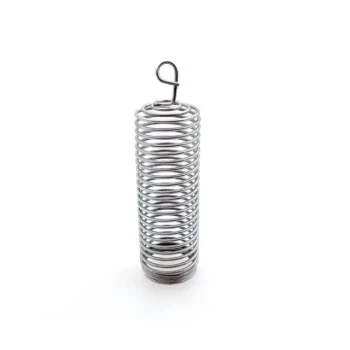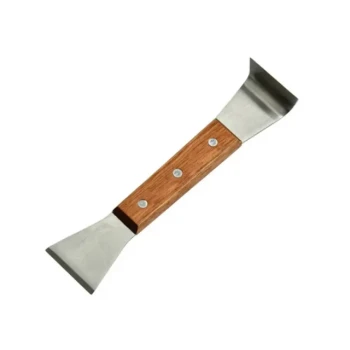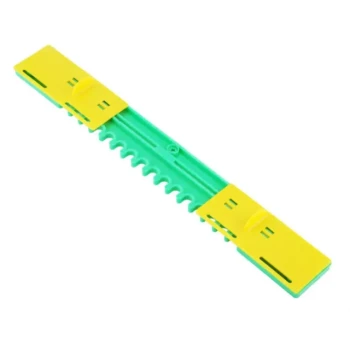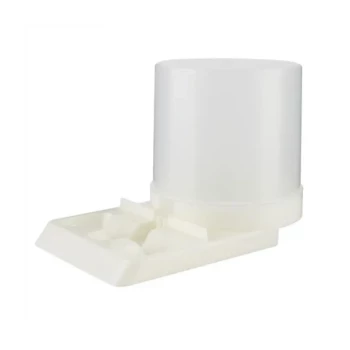In beekeeping, a nucleus hive, or "nuc," is a miniature, fully functional bee colony. It is housed in a small box, typically holding two to six frames, that contains a laying queen, worker bees, and brood (eggs and larvae). Nucs are primarily used by beekeepers to raise new queens and start new colonies on a small, manageable scale.
A nucleus hive is more than just a small box of bees; it is the fundamental building block for sustainable beekeeping. It provides a strategic tool for apiary growth, queen rearing, swarm prevention, and risk management.
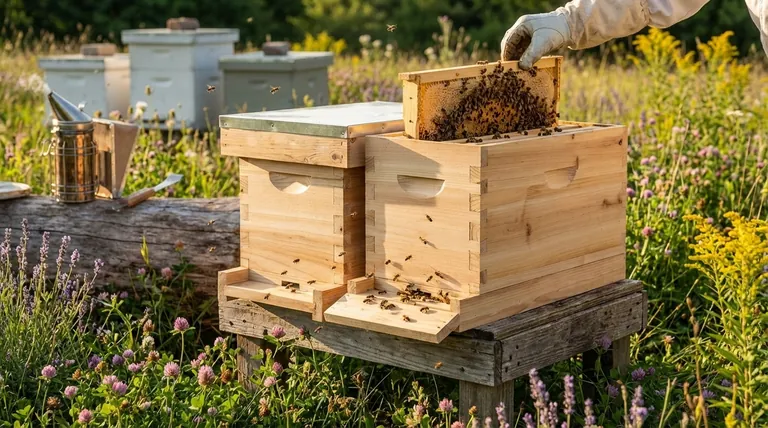
The Strategic Role of a Nucleus Hive
While a full-sized hive is focused on honey production and pollination, a nucleus hive serves more specialized, strategic purposes within an apiary. Understanding these roles is key to advancing from simply keeping bees to actively managing them.
Starting a New Colony
For a new beekeeper, purchasing a nuc is often the ideal way to start. Unlike a "package" of bees (which is essentially a loose swarm in a box with a caged queen), a nuc is an already established, functioning colony.
The bees are related, the queen is accepted and laying eggs, and the frames contain the necessary food and developing brood. This gives the new colony a significant head start once transferred into a full-sized hive.
Raising and Mating Queens
Nucs are the perfect environment for raising new queens. A beekeeper can introduce a queen cell into a nuc without putting a large, productive hive at risk.
The smaller population requires fewer resources and is easier to inspect when checking if the new virgin queen has successfully mated and begun laying eggs. This allows a beekeeper to produce their own queens, improving their apiary's genetic stock and self-sufficiency.
A Form of "Apiary Insurance"
One of the most valuable uses of a nuc is as a backup resource. If a large, productive hive suddenly loses its queen, it is doomed to fail.
A beekeeper with a nuc on hand has "spare parts"—a readily available, proven queen and several frames of bees and brood. They can combine the nuc with the queenless hive, saving the colony from collapse.
Swarm Management and Prevention
Strong hives often become overcrowded in the spring, which triggers their natural instinct to swarm, causing the beekeeper to lose half their bees.
A savvy beekeeper can prevent this by making a "split." They remove a few frames of brood, bees, and resources from the strong hive and place them into a nuc box with a new queen or queen cell. This relieves congestion in the parent hive, reducing the swarm impulse, and creates a new colony in the process.
Understanding the Trade-offs
While incredibly useful, nucleus hives are specialized tools with inherent limitations. They are not a replacement for standard equipment but rather a supplement to it.
Limited Long-Term Viability
A nuc is a temporary home. Its small size means the colony will quickly run out of space to store honey and for the queen to lay eggs.
If not transferred to a full-sized hive in a timely manner, the colony will become "honey bound" or swarm, defeating its purpose.
Increased Vulnerability
A smaller population has fewer resources for defense and climate control. Nucs are more susceptible to being robbed by stronger hives and are more vulnerable to pests like wax moths or small hive beetles.
They also have more difficulty maintaining their internal temperature during cold snaps, making overwintering a nuc a significant challenge that requires expert attention.
Making the Right Choice for Your Goal
Integrating nucs into your beekeeping practice depends entirely on your objectives.
- If your primary focus is starting in beekeeping: Buying a nuc is the most reliable way to begin, as you get a proven, working colony from day one.
- If your primary focus is apiary expansion: Use nucs to split your strongest hives, creating new colonies from your own successful local bee stock.
- If your primary focus is self-sufficiency: Nucs are essential for raising your own queens, eliminating the need to purchase them and creating backups for emergencies.
- If your primary focus is swarm control: Proactively making nucs from crowded hives is a key management technique to retain your bees and expand your operation.
Mastering the use of nucleus hives transforms you from a simple hive owner into a strategic manager of your apiary's health and growth.
Summary Table:
| Primary Use | Key Benefit | Ideal For |
|---|---|---|
| Starting a New Colony | Provides a head start with an established, functioning colony. | New beekeepers. |
| Raising & Mating Queens | Creates a safe, manageable environment for queen production. | Beekeepers focused on genetics and self-sufficiency. |
| Apiary Insurance | Acts as a backup resource with a spare queen and brood. | All beekeepers for risk management. |
| Swarm Management | Prevents swarming by relieving hive congestion. | Beekeepers managing apiary expansion. |
Ready to integrate nucleus hives into your beekeeping strategy?
At HONESTBEE, we supply the high-quality nucleus hives and beekeeping equipment that commercial apiaries and distributors rely on for sustainable growth and effective colony management. Our wholesale-focused operations ensure you get the durable supplies you need to master queen rearing, swarm control, and apiary expansion.
Contact HONESTBEE today to discuss your wholesale needs and build a more resilient, productive apiary.
Visual Guide

Related Products
- 5 Frame Wooden Nuc Box for Beekeeping
- Twin Queen Styrofoam Honey Bee Nucs Mating and Breeding Box
- Nicot Queen Rearing Kit for Beekeeping and Grafting in Nicot System
- HONESTBEE Professional Long Handled Hive Tool with Precision Cutting Blade
- Durable Galvanized Steel Spring Queen Bee Cage
People Also Ask
- What are the benefits of starting a new bee colony in a nuc box? Boost Colony Success with Efficient Beekeeping
- What are the benefits of moving nuclei around the apiary? Master Strategic Hive Management
- What is the most common type of standard nuc? The 5-Frame Nuc Explained
- What feeding feature is common in 5-frame nuc boxes? Explore Top-Feeding Innovation for Colony Growth
- How many frames does a typical wooden nuc box hold? A Guide to Choosing the Right Size




